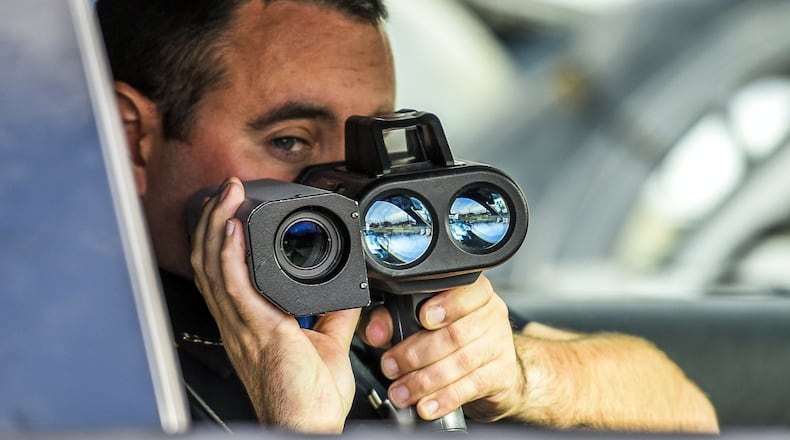Adams told Howard if the law remains in place the village will have to lay off its entire police department and cut Chief Ross Gilbert back to part-time. When the new state transportation bill passed, it reduced the amount of state financial aid local jurisdictions receive by the amount they collect annually in speed camera ticket revenue. It also mandated the courts handle speed camera citations as civil proceedings that include court fees and costs.
RELATED: Lawmaker confident Ohio Supreme Court will uphold new state speed camera laws
During the hearing, New Miami Fiscal Officer Belinda Ricketts said it would cost the village an estimated $612,000 in court costs, and tickets only generate about $222,000.
“From a financial standpoint it would cost the village almost three times more than it generates to run that program,” Adams said. “Just from the financial aspect alone it would make it impossible for the village of New Miami to run that automated speed enforcement program, the village would effectively lose its entire police force.”
Gilbert said he has five full-time positions but only three are filled at the moment, and five or six part-time employees. Gilbert testified that police respond to 150 to 200 calls for service a month, everything from traffic incidents to felony crimes. When he joined the force five or six years ago the chief was the only employee, speed cameras fund the department.
“At one point counsel said it’s common sense that if you decrease your officers, safety is going to be affected,” Assistant Attorney General Jeff Boucher said. “Common sense is not the standard in this hearing, clear and convincing evidence is, and there is no clear and convincing evidence to that proposition. And it’s not there because we don’t have any numbers.”
The stated goal of the speed camera program is to curb speeders and reduce accidents. The original speed camera program employed stationary cameras mounted on poles. Before the program was halted when the new laws took effect in July, officers were stationed on U.S. 127 with hand-held devises.
Gilbert said he believes the speeding drivers will increase if the camera program is permanently halted by the new laws.
“You can still see people excessively speeding into the village,” he said. “If they know we’re not there, they speed up.”
The Ohio Attorney General’s Office argues the new laws are legal because the state controls its own spending and has jurisdiction over lower courts. Boucher, while questioning Ricketts, got her to admit of the 600 or so tickets they issued on average every month while the camera were rolling, only around 12 drivers ask for a hearing to contest the $95 penalty.
He said Hamilton Municipal Court Clerk Michelle Deaton testified court officials can’t handle the influx of 600 cases per month, but there haven’t been any conversation between the village and court about “what the actual burden is, what the actual resources it’s going to take from the court.”
“We find out that it’s 12 hearings a month, that’s 144 hearings a year, the Hamilton Municipal Court handles 22,000 cases a year and we’re talking about adding in 144 hearings,” he said. “That is a very small percentage of the overall caseload.”
Adams said Boucher missed the point, there may only be 12 hearings but the court still must handle all 7,200 cases a year and the village has to pay to file all the cases.
“Hamilton Municipal Court is not going to get jurisdiction over 12 cases, if the program is up and running it would get jurisdiction and have to process 600 additional cases every month,” Adams said. “The testimony was clear there’s not enough clerk staff to do that, there’s not enough office space to accommodate the clerk to do that, and if they were forced to do that they would have to move, relocate the entire municipal court.”
The state will be filing another brief next week and Howard promised to have a decision soon after that.
About the Author
